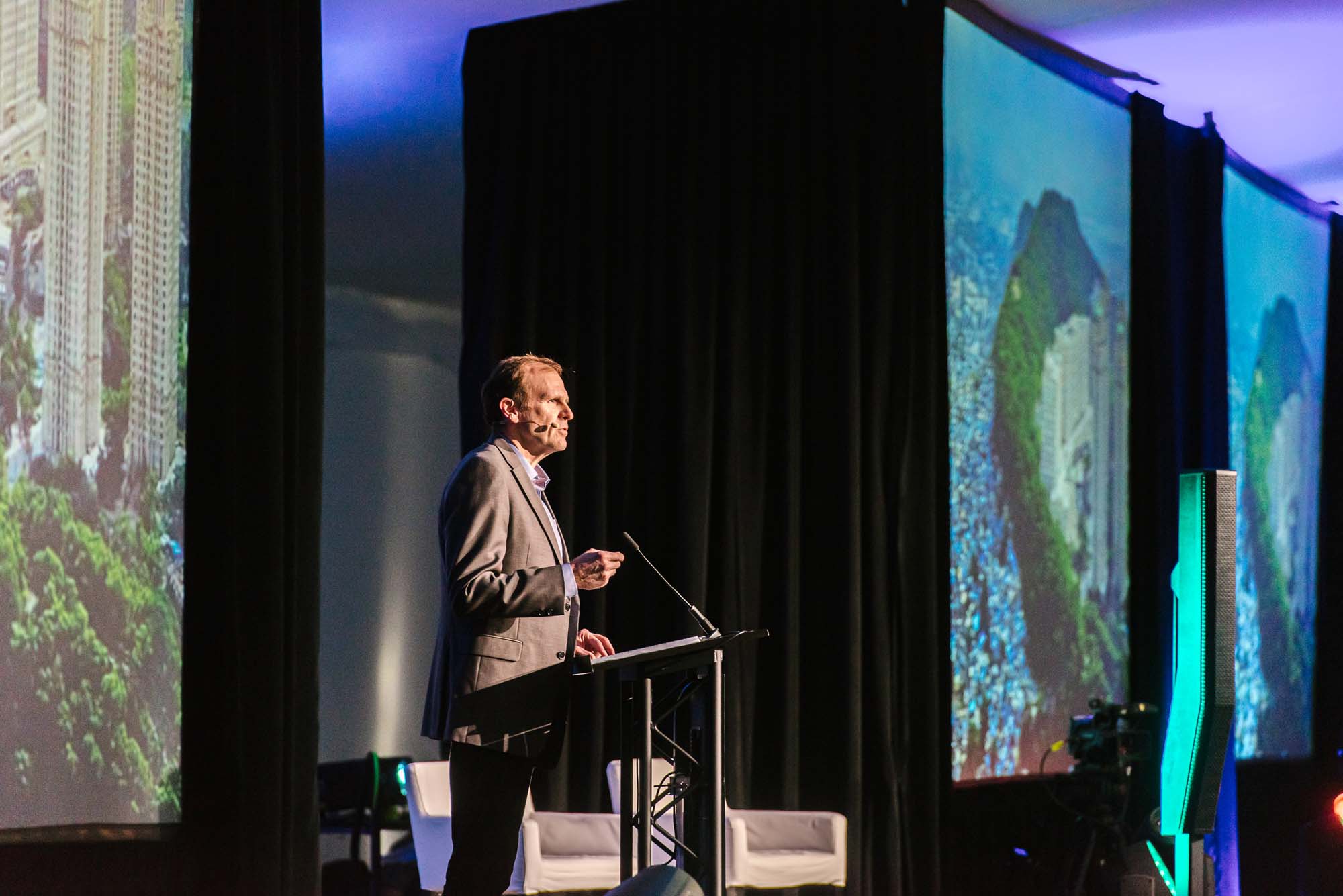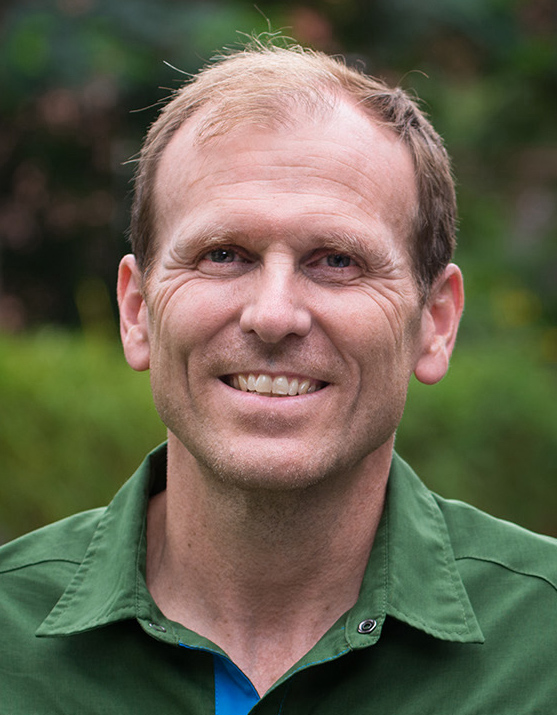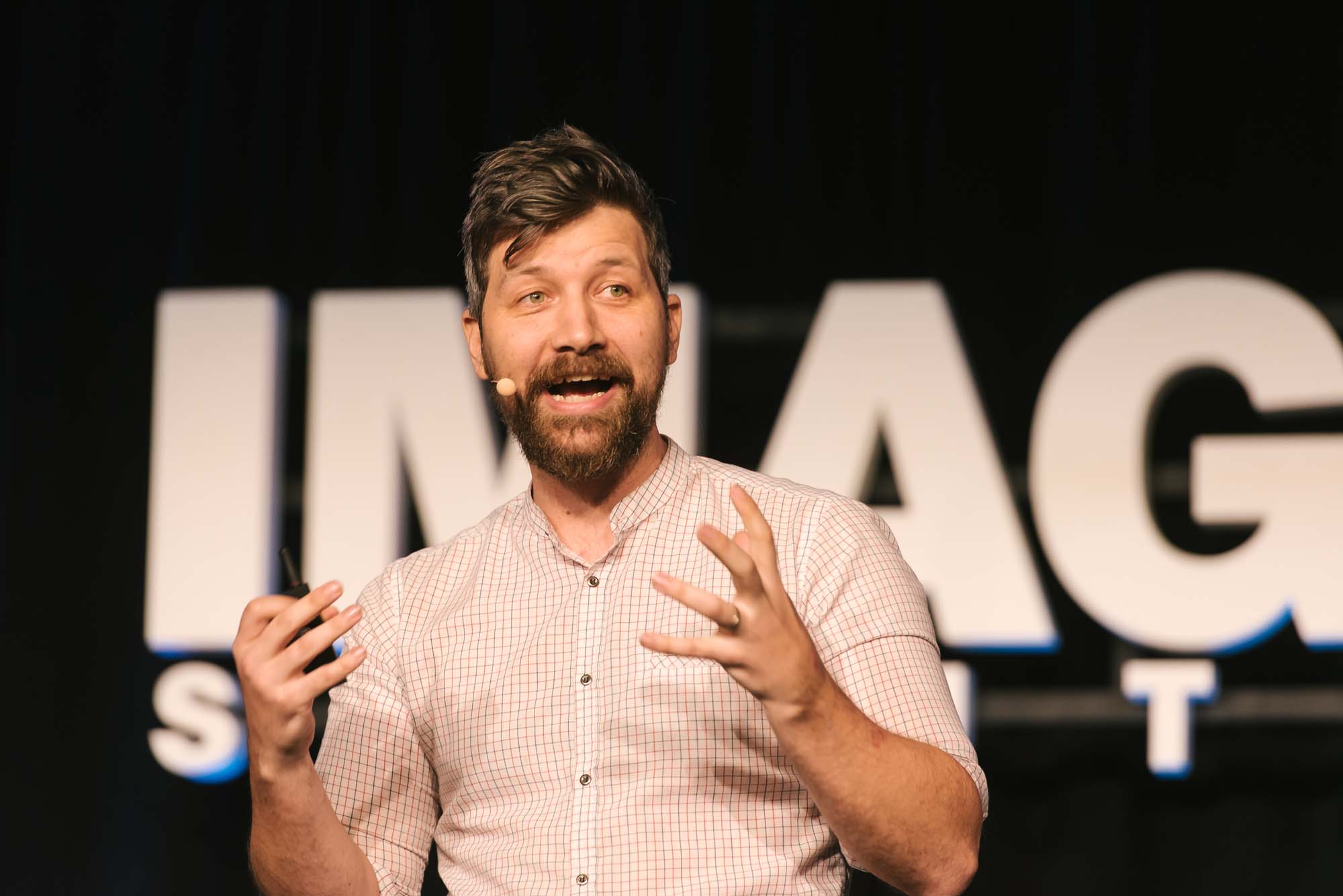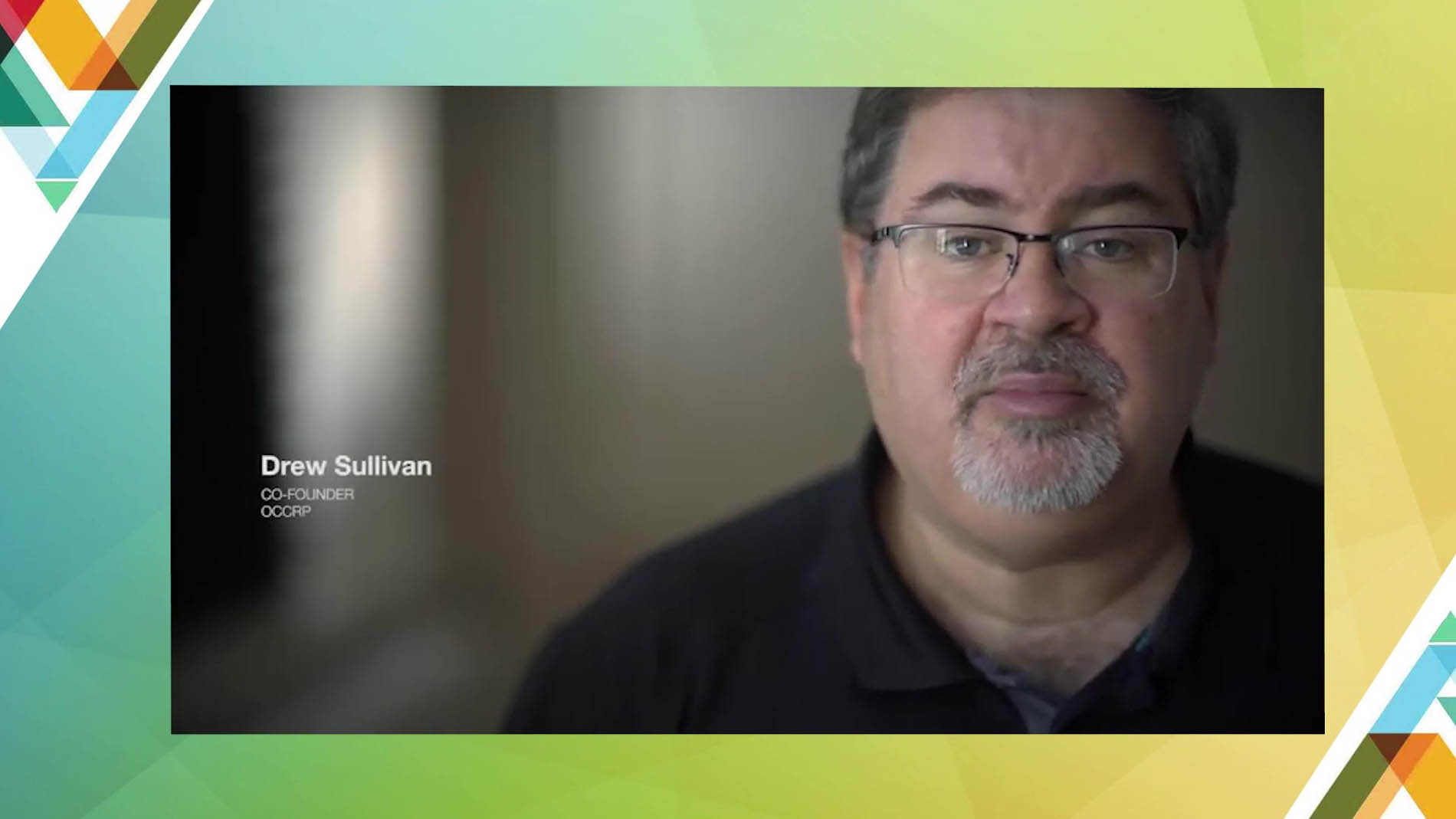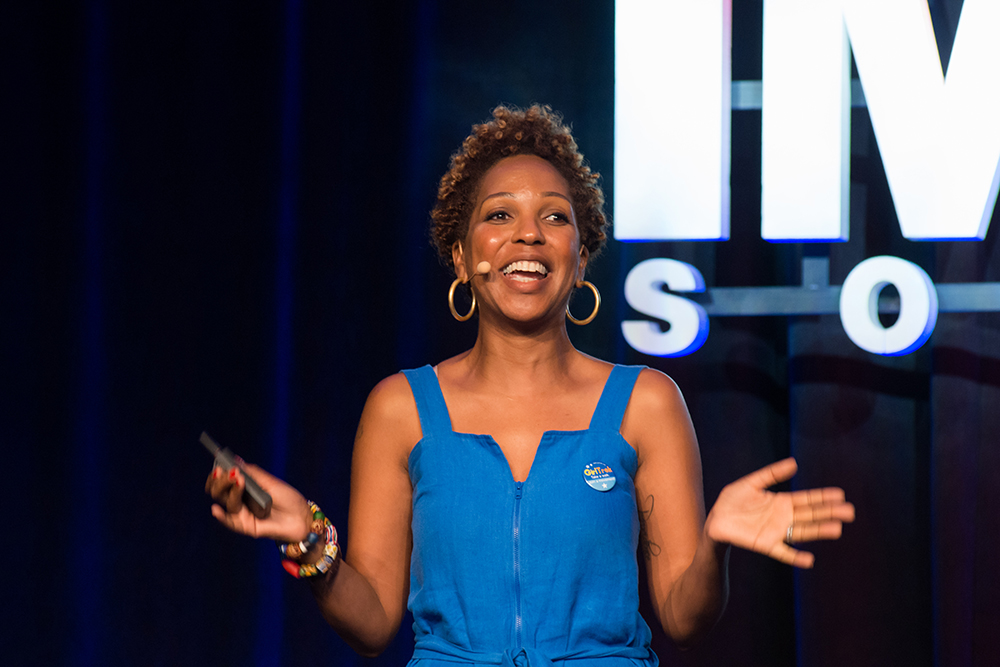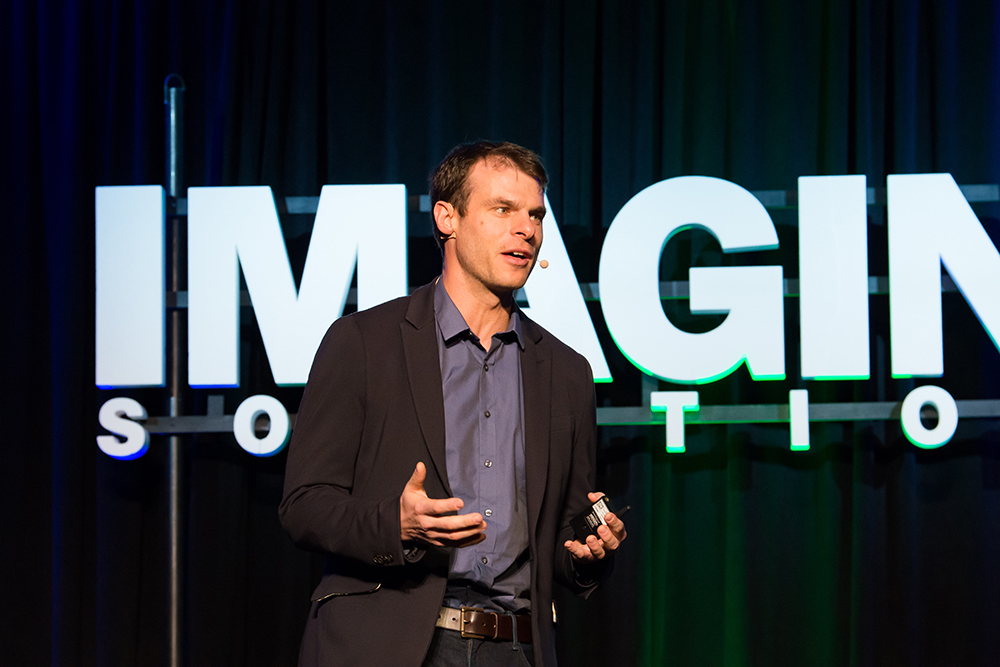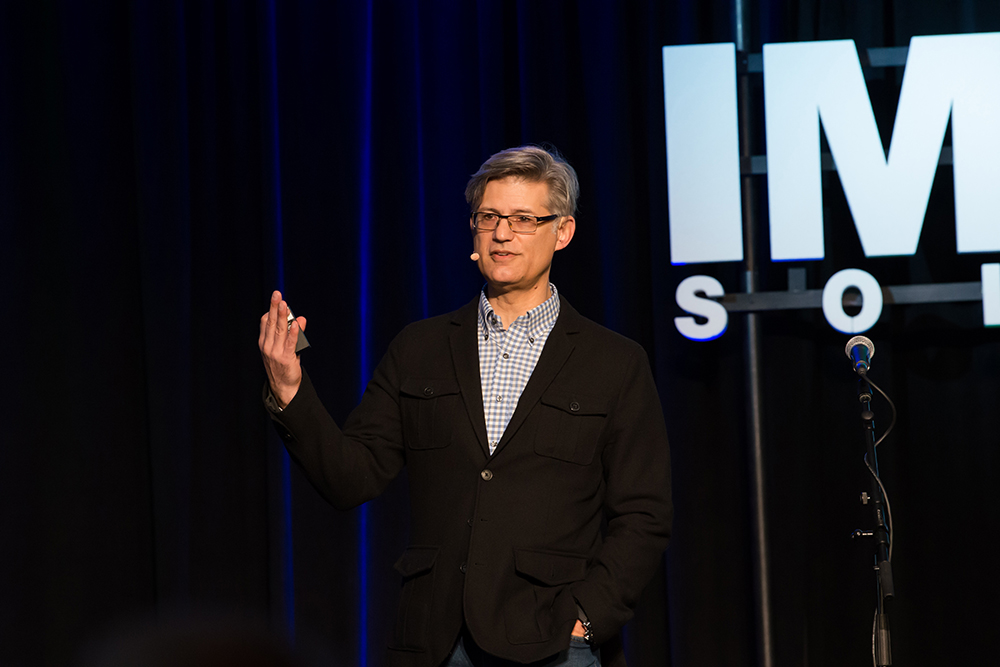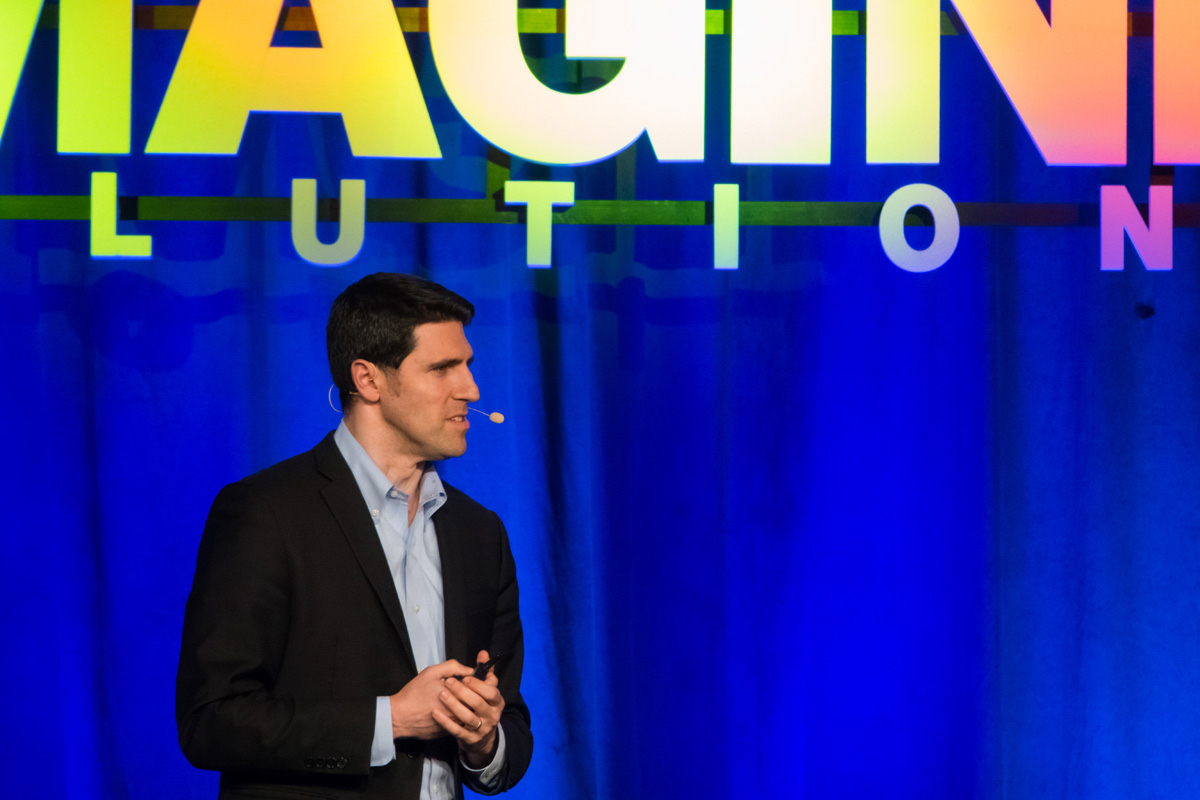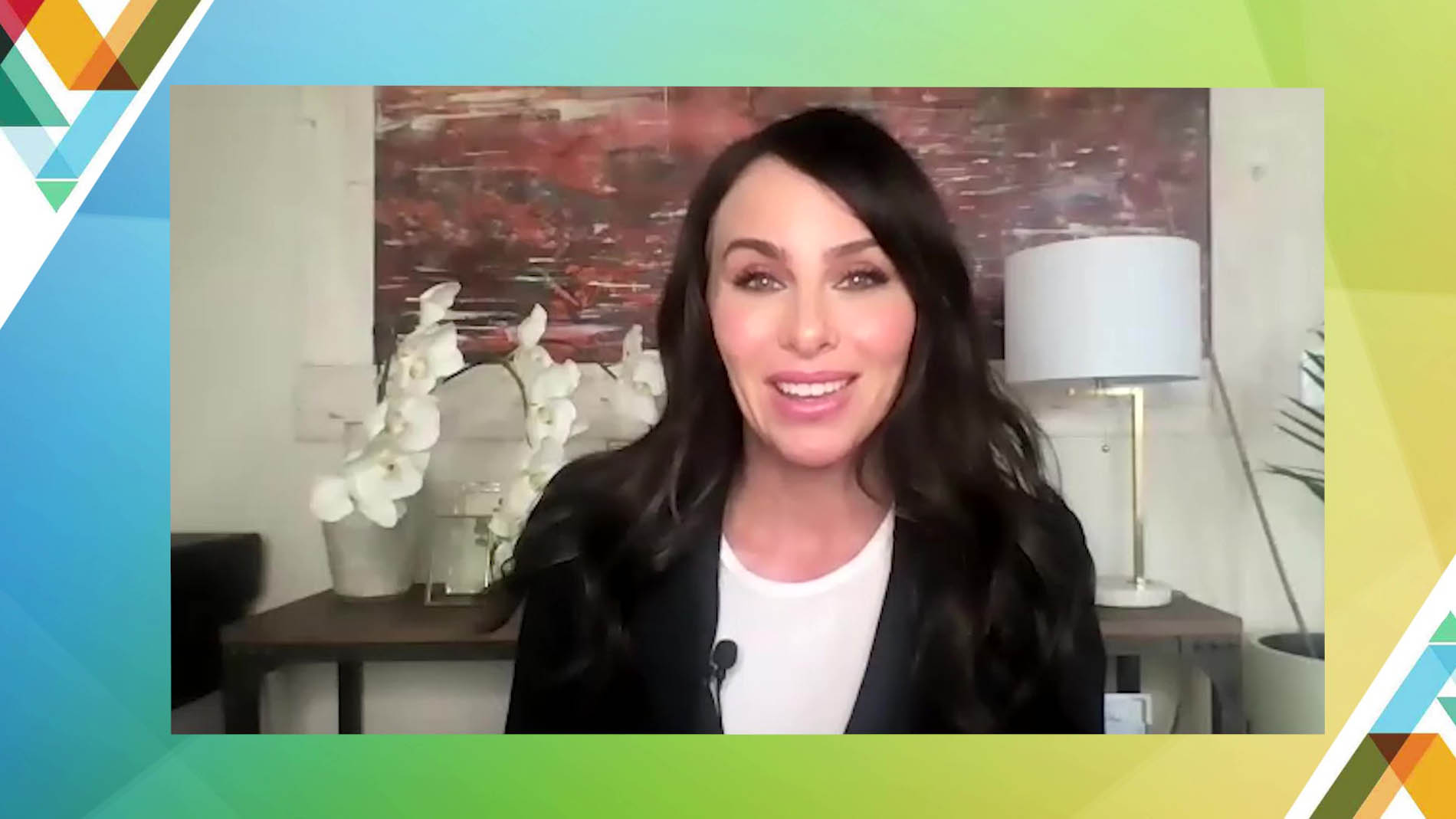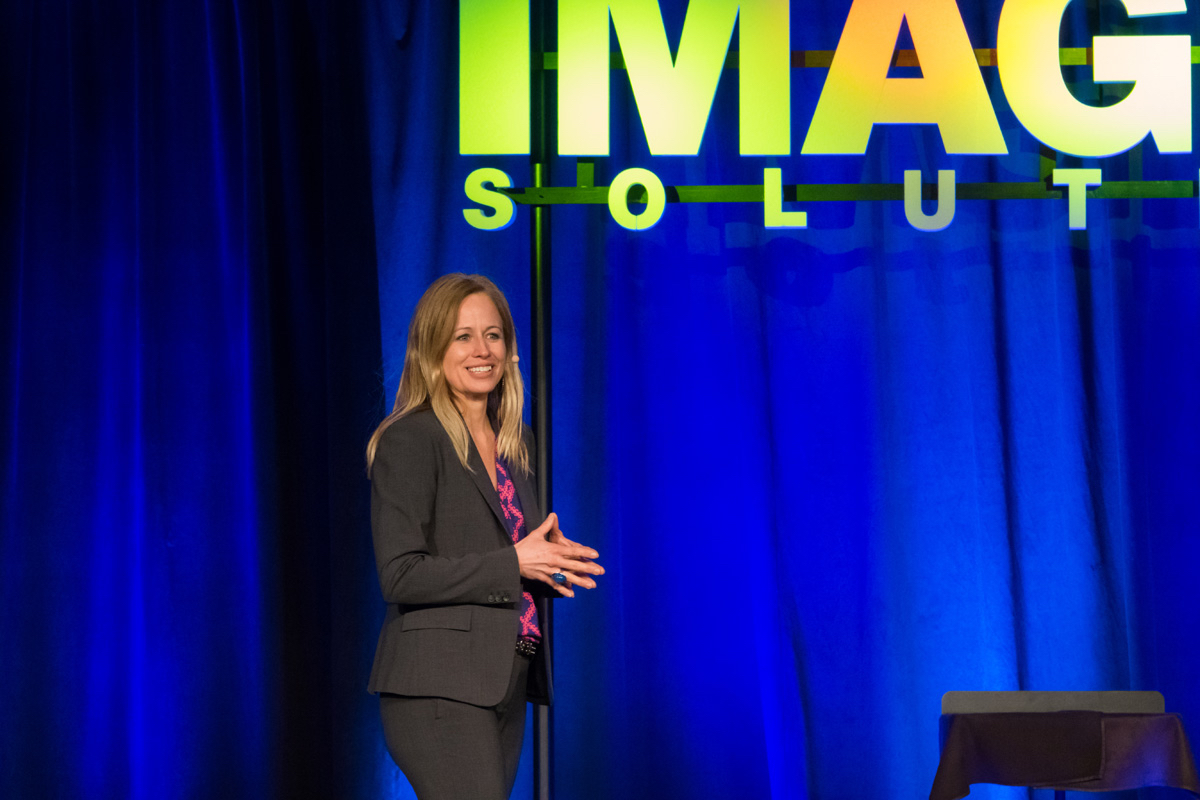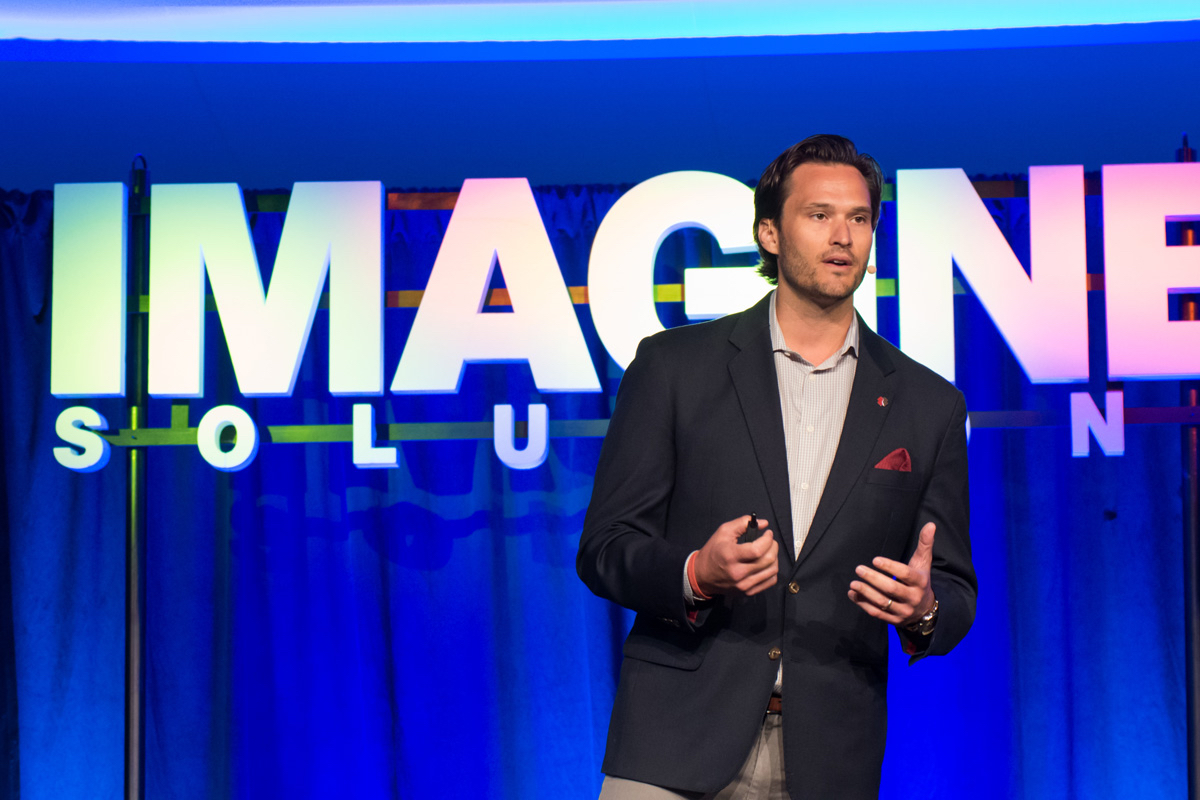Fight for Safe Water & Sanitation for Poor Populations
Ten years ago, Matt Damon and Gary White worked independently to help break down barriers between people and access to safe water. A common goal to pioneer smart solutions to the water crisis brought them together, and their combined water and sanitation expertise and star-power have allowed Water.org to emerge as a leader in the water and sanitation sector.
00.00
and our next guest is the CEO and founder of water org and water equity which is a basically an impact investment fund dedicated to ending the water crisis around the globe in our lifetime focusing exclusively on and developing capital for water and sanitation businesses all across the world but especially Asia Africa and Latin America he's named at the time 100 most influential people in the world list in 2011 he's named to the World Economic Forum's Global Agenda Council on water and in 2017 he was awarded the Forbes 400 Lifetime Achievement Award for social entrepreneurship please welcome Gary white and he will be joined in a moment by the head of the water school at FGCU Greg Polly welcome [Music]
01.02
no good morning and Thank You Tyler for that introduction I appreciate that I'm really happy to be here with all of you today to talk to you about my greatest passion and that is access to water and sanitation for people living in poverty around the world now as an engineer who runs to nonprofit organizations you're probably thinking okay he's going to talk about how we've got to figure out to go how to figure out how to go around the world and drill more Wells and he's going to talk about we just need a whole lot more charity to go and do this and that used to be my approach but not anymore instead I'm going to tell you today that there are people living in poverty who don't necessarily need charity to solve their global solve their personal water
02.00
and sanitation crisis I'm going to start by telling you the story of the most significant moment in my three decades of doing this work and it's actually not a story about water but water does figure into it it's really a story about finance now it was 2003 I was in an India for my work and I was in Bangalore and back in a slum in Bangalore and I was talking to the women there about how they meet their water and sanitation needs and it struck me in particular when they started talking about sanitation because they told me that what they had to do they had to wait until the cover of night to go out by the railroad tracks near their community to defecate because of the privacy concerns that they had and what this did is it subjected them to increased risk of attack and I was stunned by that and
03.01
as I met one woman in particular at her home very elderly woman I noticed that she had a different solution she actually had built a toilet at her home because she lived up on the steep got a rocky cliff side and she could no longer walk to defecate at night it's too dangerous but I knew that toilet had to cost several hundred dollars and there's no way she would have been able to pay for that so I asked her and she told me she had gone to a loan shark to be able to get enough money for a loan to be able to build that toilet and as she's telling me about the terms I did the math right and she was paying a hundred and twenty five percent interest on that loan to the loan shark a hundred and twenty five percent so here's a woman making monthly payments towards a better quality of life but she'd been left to loan sharks because no one saw her or as you'll see millions like her around the
04.02
world as an investment but that's starting to change and that's the bigger story that I want to share with you today my experience with the woman in Bangalore was a turning point for me it opened my eyes to the fact that even after working closely with people living in poverty for almost three decades I still had a few big misconceptions about their lives and it's those misconceptions that were keeping me like many others from properly investing in people living in poverty and he'll break down those misconceptions you can open the doors to significant new opportunities with people a significant opportunity for billions who are fighting to break the cycle of poverty in their lives and also opportunities for donors and investors so let's take a
05.01
look at a few of those misconceptions and try to break them down the first misconception is best captured by an analogy from the late Hans Rosling Hans was a doctor a global development expert and an author and he wrote a brilliant best-selling book that I hope you'll have the chance to read it's called facts illness and in that book Rosling talks about how when you're standing on the top floor of a skyscraper and you look down at the buildings around you they all seem to be about the same height whether it's one story two stories or four stories and so likewise if you happen to be making hundreds of thousands of dollars a year and you hear about people who make one or two or four dollars a day it all seems about the same it's practically nothing so of course we don't look at these people as being able to pay for water and
06.00
sanitation but in reality going from one dollar a day to two dollars a day that's a hundred percent increase going from two to four it's another 100 percent increase and this jump can make more of a difference in people's lives than we might think more than we can easily see when we are observing their lives from our own elevation so now consider the water and sanitation crisis from that perspective right now there are more than 785 million people with no safe water access within a 30 minute walk of their home but think they're still finding water somewhere right I mean if they weren't they wouldn't be alive today the question is how are they getting it and what's it costing them well some people and particularly the women and girls are walking great distance to water holes and streams
07.02
collecting water and carrying it back home on their backs they're paying for water with their time time that could be spent at more productive activities but other people are actually paying with their money in urban slums people tend to pay upfront for water that's delivered by these big water trucks that come through the slums and they're paying a lot for that water in fact they're shelling out ten to fifteen times more for that water than if they were connected to the public utility where their middle-class neighbors are getting their water also every day millions of people pay to use public restrooms okay we call these coping costs and they're substantial I've met people who pay 20% of their income just to get water each day so
08.01
think about that for a family in the United States with an average income of $50,000 each year imagine if your water bill was ten thousand dollars that's the magnitude of what's happening here with people living in poverty solving and coping with this crisis well I've come to realize is it's expensive just to be poor but if someone could give them a loan for a few hundred dollars they could pay for a permanent solution like one of those water connections to the utility in their home or a toilet right on their own property life-changing solutions that would cost far less than what they're paying today for coping costs but as I learned from that woman I met in 2003 no one was offering these loan solutions except the loan sharks reputable lenders would not lend because
09.01
they did not see the potential for cash flow for these water and sanitation loans they didn't see them like small business loans that they would make and see that cash flow and they just simply saw them as too risky and that default rates would be too high that's when I started about 15 years ago to set out to see we are going to find ways to make those lenders make those loans so people in sanitation so people in poverty could get those water and sanitation connections now I did have a good hunch that this was gonna work but I was stunned by how well it did when we put it into action so you fast forward to today over 28 million people have now gained access to water and sanitation through these micro loans that we set into motion the recipients are paying
10.00
them back at a 99% rate so we have a decade of proof now with many different financial partners in many different countries around the world that for every 100 people who take out these loans 99 of them pay them back within two years not only is it true now that many millions of people living in poverty are able to pay back the loans to meet basic needs it's also true that many of them are moving up and out of extreme poverty because they're better able to invest in solutions like these because they've built a better life and more Economic Opportunity because they have safe water and sanitation this moving up and out of poverty is one of the most significant trends of our lifetime what if I told you that today 200,000 people lifted themselves out of
11.00
extreme poverty and what if that happened yesterday and the day before this is what's happening right it's every day for the last 25 years 200,000 people have have lifted themselves out of extreme poverty this is the scale of this trend these people are moving out of poverty is the single largest source of untapped economic growth on the planet so what we see is that people living in poverty aren't always this or even necessarily seen as a problem to be solved but they should be seen as a market to be served so that is why we at water.org and water equity don't just focus on digging more wells we focus on affordable financing we correct market failures to meet this tremendous demand for water and sanitation solutions in a number of ways two of those are
12.01
catalytic philanthropy and impact investing so Atwater org catalytic philanthropy leverages each dollar sixty eight to one at water equity our impact investments provide an attractive financial return to investors while also delivering big social impact in water and sanitation earlier I noted how over the past few decades more than two billion people have quietly conquered enormous challenges in order to lift themselves out of extreme poverty as a result now only one-half as many people are living in extreme poverty as they were in 1990 if we invest in people in poverty we can jump-start even more of this economic growth and build even greater resilience in poor
13.01
communities every dollar spent on water and sanitation yields four dollars in economic impact now investing in them we invest in all of us this is why for all the challenges we are facing at the moment I also see us as living in a time of incredible opportunity we have the chance to make sure that no one has to spend life trapped in a constant battle just to meet their basic needs in any other era that would be seen as aspiration or even self delusion and virtually every other time in human history we simply had to expect that some would go without food some would go without shelter some would go without water but not anymore today we can work
14.04
towards meeting the basic needs of everyone everywhere if we just change our frame of reference we can see this today not as a shared burden but as an opportunity for shared benefit that's the spirit behind our work and I know that that same spirit is here with the people in the room today we know that by sharing our prosperity we can grow it for all now i started today by telling you people living in poverty don't need charity to solve their water and sanitation crisis and that's true but those misconceptions we just talked about they stand in the way of prosperous markets for all and philanthropy is necessary to set all this in motion to correct those market
15.01
failures so it's taken me a long time it's taken me decades to gain these insights that I've shared with you today and to put them into action and I warned you there might be some unexpected ideas and I realize there may be some cognitive dissonance with what we're talking about and people living in poverty in these solutions and that may be a good thing but I want to thank you for sitting through this crash course with me the past 10 minutes and I also mentioned that front that this work is my passion and I wouldn't be doing my job today if I didn't encourage you to join in supporting this work so consider yourself encouraged and if I haven't done that yet give me a shot later and maybe I can convince you catch me after the talk so in closing I encourage us all to seek
16.00
out the misconceptions that hold us back and to find our own blind spots hopefully you have someone who can help like that woman in Bangalore help me we're all here today to talk about solutions in my experience the key to discovering new solutions to rut is to recognize our blind spots then what's currently holding us back becomes the insight that we need move us all forward thank you so water is both a global and a local issue and so now we're going to go from the global to something more local here in Florida and I'd like to welcome dr. Greg Thole to join me on stage to discuss his
17.00
insights and solutions focused right here in Florida dr. Tulley is a professor of marine science and chair of the department of marine and ecological sciences at the water school of Florida Gulf Coast University he's the author of numerous publications on marine ecology and physiology as well as on novel approaches in science education a certified fisheries professional with the American fisheries society Thole is acting director of the Florida District of the American Institute of Fisheries research biologist as founding director of the coastal watershed Institute he worked to enhance research on coastal environments in Southwest Florida dr. Tolley [Applause] so we have a few minutes to kind of zoom in to the to the local here in Florida and I guess I just start by asking you what is the the biggest challenge that that we face with water in the
18.01
environment in South Florida well first of all I'd like to thank you for the amazing work you're doing with water.org not only providing water security for tens of millions of people around the world but lifting them out of poverty at the same time through market-based solutions that's really creative and and it's it's very clear that a single individual with a group of friends that has passion can change the world so I applaud you for that water security in Southwest Florida looks a little different we have more first world problems than what you described previously water security in Southwest Florida can be clean drinking water and human health but it's also clean water for healthy ecosystems which is what brings a lot of us down here in the first place it's clean water for economic development and growth and of course water isn't always friend water can be a problem in terms of floods and droughts and down here especially hurricanes and sea level rise so I know that it's fairly young with the water school the university is
19.01
digging into some of these issues why was it so important to form the water school and how is it connecting students and faculty to some of the issues in in Florida well I always tell people to job of a university especially this university our number one job is for our students that's our number one responsibility but our number one number two responsibility is to our communities we're at the grocery store shopping with you we're buying gas at the gas station we're part of your community we have the same experiences you have we just have a little bit different skill sets sometimes so the water school is building on over 20 years of work we've been doing at this university since we opened back in 1997 but we're casting our net more broadly now we realize that these issues that we're facing many of which are legacy issues we've inherited because we haven't thought far enough into the future or across local horizons to think about how these things interconnect and water is you know my message is water is it's part of a
20.01
system and whether the work that you're doing which is impacted by climate change for example or the work we're doing on red tides which is impacted by human development and fresh water delivery these things are all connected and we need to think of them as a system so this last year we established the water school to focus more of an interdisciplinary approach on water issues here in Southwest Florida for those of you who don't know the area as well as some others 20:19 this time last year we had just come out of the fifth longest red tide in Florida history we had had a hurricane that was the preamble to that and then right in the middle of the red side we had harmful blue-green algae blooms which are affecting people across the planet so this was our Cuyahoga moment this was our transformational moment I think and I think we're saying we have these Cuyahoga moments occurring around the we've got fires in Australia and California we've got droughts in the
21.00
Midwest we've got flooding in Mississippi we've got sea-level rise in Miami so our first speaker today was talking about signs and the importance of recognizing signs we certainly see those with respect to water yeah I think you you know I don't live in Florida but my perception from outside looking at these issues is that Florida is the canary in the coalmine when it comes to climate change and how it's going to impact the the state and the populations and I know with a lot of corporations that we talk to they were afraid of stranded assets right so that plant for our situation right that might have a water resource now that has a billion-dollar investment in the plant and infrastructure that what happens if they run out of water at that plant all of a sudden they have to give up a billion-dollar asset and it seems like Florida is just that like multiplied times a thousand in terms of all the coastal development do you feel the weight on your shoulders here in Florida
22.00
to like solve these issues early so that others around the country in the world actually can learn from you well I think we're one of many agencies and organizations that's trying to make sure the United States actually leads the way and this so that we can actually affect change globally and part of that is through partnerships with businesses and corporations part of its government as well but a lot of it is grassroots local citizens nonprofit organizations such as the one you started decades ago so we do feel a little bit of pressure but that's a good thing to feel and what we're trying to do is reach out with our local communities and local stakeholders to make sure that we're working on these issues together Florida is flat as you probably know this flying in it's got fifty billion dollars of real estate that's probably at risk for stranded assets in the coming 20 or 30 years for example and Florida is a moving target we've got about a thousand people moving to the state per day so
23.00
Florida is a challenge because it represents some of the the highest pressures that you can experience between sea level rise hurricanes population growth and a topography that's very very flat some of the greatest challenges that you can see in any part of the country I tell people we're in the right place for all the wrong reasons yeah absolutely well the thing that that I always get encouraged by is the youth coming up in their desire to engage with issues like this I know with with water.org and water equity we get inquiries all the time of you know young people coming out of university that want to engage in these issues and roll up their sleeves and help because they know they're the ones that are going to like pay the tab you know if so to speak a few decades down the road and you've been doing this for a long time and have been in academia for a long time what does the trajectory been that you've seen about young people and how they're tuning in to issues that you're focused on and how is that manifesting itself
24.00
with the water school the students coming in there well I'm happy to report that our young people these days and in our College are I think much more familiar with and knowledgeable about climate issues and global issues than I certainly ever was so it's encouraging from that standpoint and one of the things we're trying to do at the water school is not only to give people information fact-based information so that we can make our own decisions when it comes to the ballot box or where we put our donations where we spend our time for example but also to train the next generation of future water leaders and that's going to be very very important so I'm encouraged with the amount of interest that our students have these days oftentimes expressed in their volunteer work and work that they're doing outside their classes to make the world a better place so you're leading this initiative at the water school I'm curious how how much time do you still get to roll up your sleeves and do the research and are there some
25.00
projects specifically that you just are drawn towards right now that you like I always want to keep keep it you know a foot into that the real research aspect of what's going on and discover what's there well you hit the nail on the head you know sometimes a sign of success is not getting to do the things you used to like to do it got you in the first place in the field my job these days is mostly to make sure that the the tremendous faculty that we have at the water school and the staff and our students have the best opportunities to be successful in what they do so my job these days is essentially promoting our research initiatives on on sea level rise and climate change we have a faculty member that's working on she actually goes back in history by going back in the sediments to look for ancient hurricanes as a proxy for what we might expect in the future are we going to see stronger storms heavier rainfall and of course harmful algal blooms is another big initiative we do so I'm I'm mostly a big cheerleader these days try and keep my hand in the science a little bit but
26.01
we've got great people in the area and we're attracting new people each year to try and address the water issues here in Southwest Florida that's great I think we're out of time but I just want to kind of bring this back together I think that of course water manifests itself in so many different ways we can see just the differences yet similarities and what each of us do and also the complexity of it too and I think that's the other thing that that we've learned is like these are complex issues and they do take deep thinking and they do take the support of people who are voting at the ballot box or people who are impact investing or donating to these causes to to solve for the water issues because this is going to be I think the defining issue too much water in too many different places too little water and others poor quality water for the ecosystems or for people living in poverty and we've got to put this at the top of the agenda and solve for water and I hope everyone in the room here
27.00
feels that that's urgency as well so thank you dr. Coley thank you thank you Kerry you [Applause]

